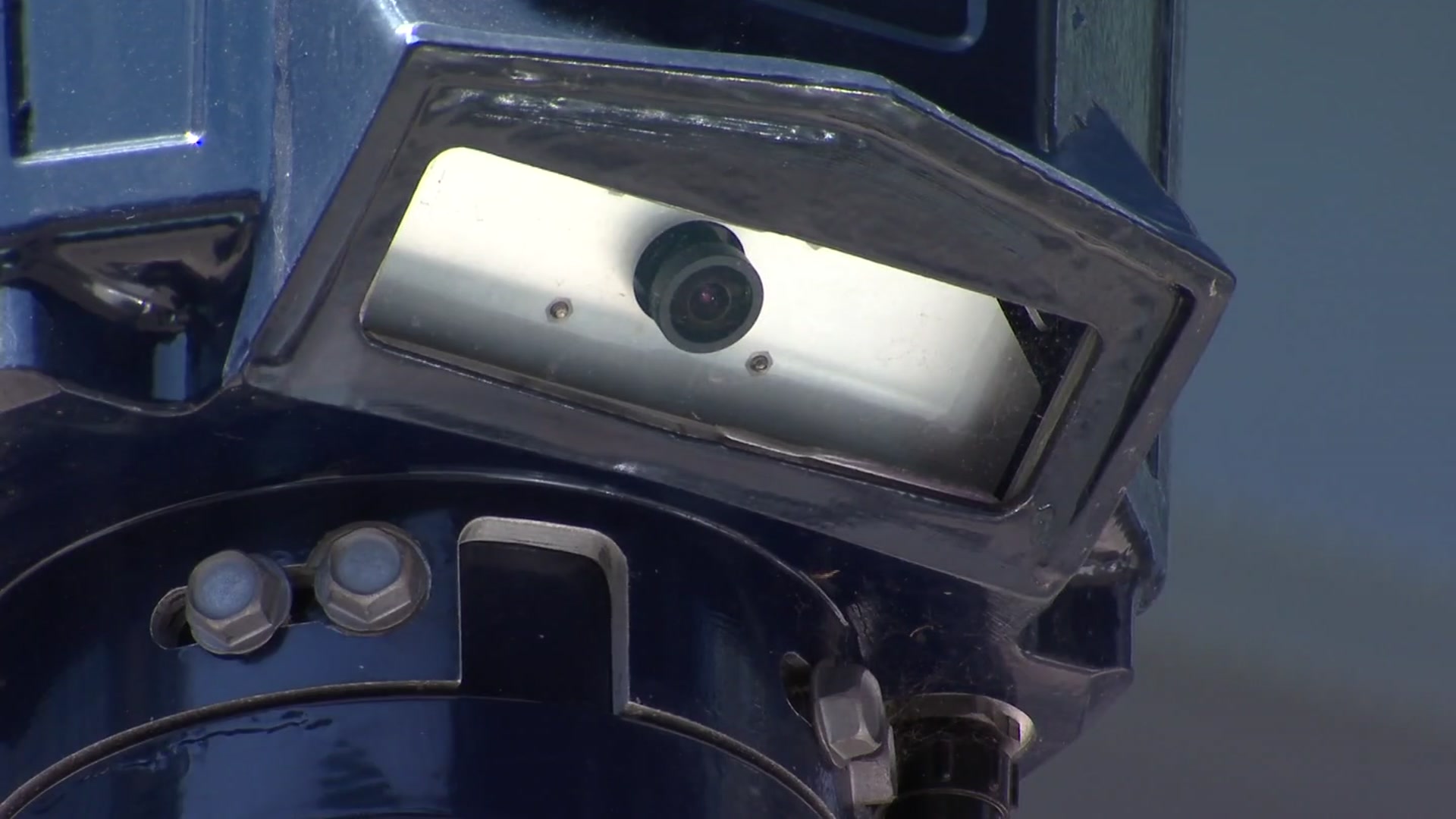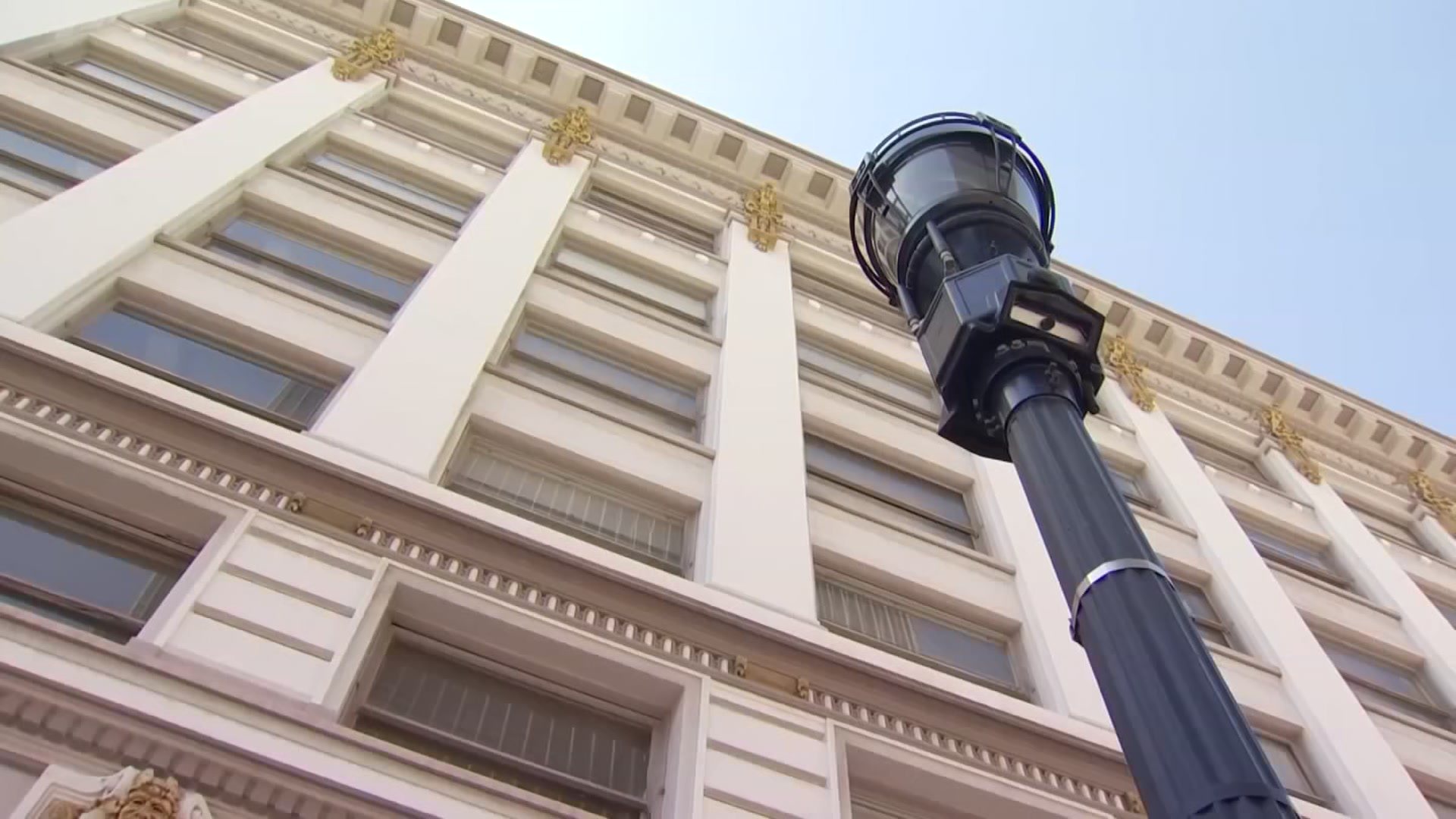With the San Diego Police Department (SDPD) considering the use of streetlight surveillance cameras, the public is invited to voice their opinions on the matter this week.
SDPD is proposing the use of surveillance cameras and microphones on streetlights, plus automated license plate readers on patrol cars, in an effort to combat crime. Supporters of the so-called “smart streetlights” say they keep the public safe while opponents argue they infringe on citizens' privacy.
'Smart Streetlights'
To gather residents' thoughts and present more information on the proposal, SDPD is hosting meetings this week in each city council district.
Get top local stories in San Diego delivered to you every morning. >Sign up for NBC San Diego's News Headlines newsletter.
The remaining sessions are scheduled as follows:
- Tuesday, 1 p.m.-3 p.m. Education First Building, 3455 Kenyon St.
- Tuesday, 6 p.m.-8:30 p.m., Balboa Park Club, 2150 Pan American Road West
- March 8, 1 p.m.-3 p.m., SDPD Mid-City Division station, 4310 Landis St.
- March 8, 5 p.m.-7 p.m., City View Church, 8404 Phyllis Place
- March 9, noon-3 p.m., Mira Mesa Library, 8405 New Salem St.
- March 9, 5 p.m.-7:30 p.m., Bridge Church, 3714 Teak St.
- March 10, 11 a.m.-1:30 p.m., La Jolla Recreation Center, 615 Prospect St.
Public comments on the topics will be accepted through 5 p.m. on March 10.
More From Both Sides
The Smart Streetlights program – a $30.3 million effort – was approved in 2016 and resulted in more than 3,000 cameras and microphones installed in streetlights around San Diego. The technology was used until 2020 when SDPD suspended the program in response to protests over privacy, equitable distribution of the cameras and lack of oversight.
A new proposal could put the streetlights back in action for SDPD as long as their use aligns the terms of a 2022 ordinance detailing requirements that every city department must meet for each technology that meets the criteria of surveillance, officials said.
Critics have argued the surveillance program unfairly targets people and communities of color, but San Diego Mayor Todd Gloria and SDPD representatives claim it will do the opposite.
"Rather than looking for every white sedan out there, we can look for the 2003 Toyota Camry with the bumper sticker and therefore limit the number of law enforcement interactions with innocent individuals, so ultimately, I think the concerns people have raised about over-policing in some ways are addressed by this technology ..." Gloria said.
SDPD Captain Jeff Jordan, who presided over community meetings Monday afternoon in Rancho Penasquitos, said the cameras will be used to investigate crimes and not for general surveillance of communities.
"The cameras have always been used, from their initial deployment to what's proposed today, to be reactive in nature. No one is watching these cameras. Now, if there's a homicide that took place or an armed robbery, could we go back and look at that specific footage as it relates to that criminal activity? Of course. But that is a distinct nexus to criminal activity," Captain Jordan said.
Smart streetlights helped officers investigate over 400 cases, according to SDPD, like the 2018 killing of a flooring store owner in the East Village.
In an interview with NBC 7 before Monday afternoon's meeting, Captain Jordan described the advanced streetlights as a "force multiplier" that help extend his department's resources.
"The technology, particularly when we used it previously, was critical," SDPD Captain Jeff Jordan said. "It was a force multiplier and a game changer for us with staffing being at its lowest point in the last 15 or so years right now, having the force multiplier of this technology and getting it out in the communities to make an immediate impact and an immediate difference will pay huge dividends."
Some residents argue that if you're not doing anything illegal then you shouldn't have anything to worry about. Others still worry about oversight and are fearful privacy lines will be crossed.
Homayra Yusufi with Trust SD said she's worried about surveillance content falling into the wrong hands.
"Police Departments have gone in violation of state law and shared private information about individuals with federal immigration enforcement, and I want to make sure our communities are protected across San Diego," Yusafi said, referring to five county agencies, not including SDPD, that shared surveillance data with other agencies outside the state.
Yusufi and other members of Trust SD helped the city craft its new surveillance ordinances.
"Every time that we've had cameras anywhere, there has always been 4th Amendment abuses," meeting attendant Pat Herron said.
City leaders told NBC 7 that some older smart streetlights are no longer functional and need replacing. The city wants to add 500 units in addition to the ones already in place.



